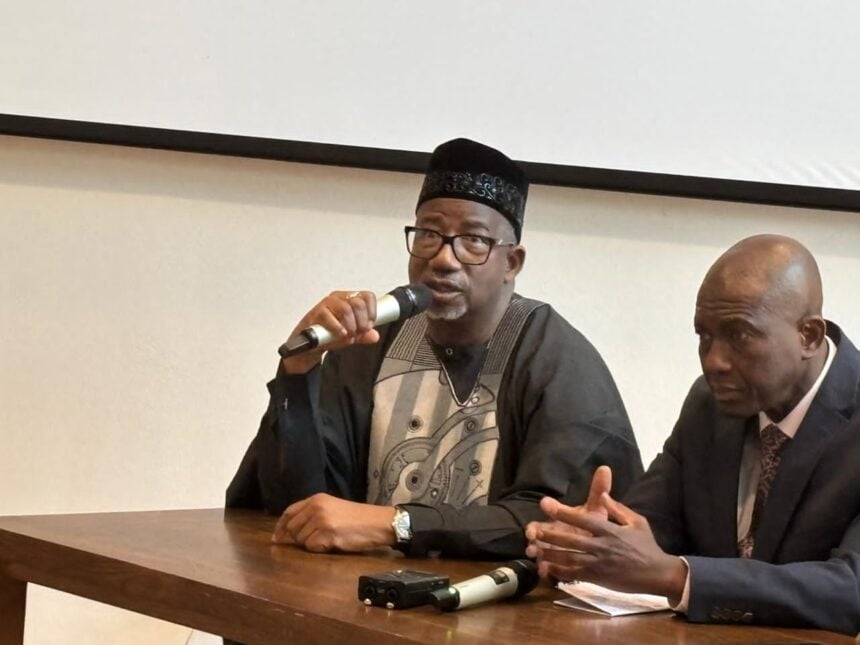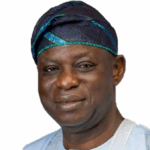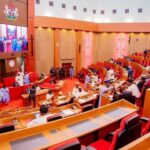Bauchi Governor, Sen Bala Abdulkadir Mohammed, has emphasised the importance of regional unity, economic integration, and inclusive governance in addressing West African challenges.
The Governor spoke when he joined other distinguished leaders and scholars at the Christ Church College, University of Oxford, on 9th May, 2025, to commemorate the 50th anniversary of the Economic Community of West African States ( ECOWAS ).
As a key discussant, Bala Mohammed echoed his concern and stated that, “the West African Community is failing due to poor governance, a trust deficit among leaders, and weak institutional accountability. These failures are not abstract, they impact people’s lives every day.”
While highlighting lessons learned from this reality, Bala Mohammed pointed to the ongoing reforms in his state-Bauchi, located in the North East subregion of Nigeria, stressing the importance of leadership rooted in responsibility, transparency, and empowerment.
The Governor further highlighted Bauchi State’s strides in education, healthcare, infrastructure, and economic empowerment as a microcosm of the broader regional aspirations.
He called for increased cooperation among West African nations to harness shared resources and address common challenges, reinforcing the vision of a united and prosperous ECOWAS.
He echoed former Nigerian President Olusegun Obasanjo’s concerns, pointing to a deeper malaise afflicting the regional body: poor governance, a deficit of trust, and weak institutional accountability.
He also highlighted the imperative of evolving a leadership culture rooted in visionary principles and urged ECOWAS leadership to embrace it if the body is to survive another half-century.
While delivering the keynote address, Former President Olusegun Obasanjo, one of the Champions of ECOWAS, offered a sobering assessment of a bloc once hailed as a model for regional integration in Africa.
He recalled the early efforts to advance free movement, trade integration, and Pan-African solidarity, but warned that those gains now hang in the balance.
“The trust that once existed among West African leaders is eroding,” Olusegun Obasanjo said, stressing that, “Without cooperation and committed leadership, the region cannot move forward.”
His remarks came amid growing concern over regional instability and the rise of competing alliances such as the Alliance of Sahel States (AES), formed in defiance of ECOWAS by military-led governments in Mali, Niger, and Burkina Faso.
Former President Obasanjo, a key figure in ECOWAS development, recalled their collective efforts in promoting free movement, economic integration, and social inclusion.
He warned that these gains are now threatened by political divisions, inconsistent leadership, and the recent formation of the Alliance of Sahel States (AES), a process that signals growing regional fragmentation.
According to him, “The trust that once existed among West African leaders is eroding, he said. Without cooperation and committed leadership the region cannot move forward.”
Other discussants included Ghana’s Acting High Commissioner and Burkina Faso People’s Representative abroad, with discussions centering on strengthening democratic institutions, enhancing security cooperation, key political, economic, and social shifts, and promoting sustainable development across member states, where former Nigerian President, Olusegun Obasanjo, was the keynote Speaker.
The Forum was primarily to encourage open dialogue and brought together policymakers, academics, students, scholars, and political leaders to reflect on the bloc’s legacy and its uncertain future.
The distinguished guests, former President Olusegun Obasanjo and Governor Bala, were hosted at the Hammond Hall of Christ Church College by Katherine Jane Willis, Baroness Willis of Summertown.
As a gesture of academic and civic goodwill, the visitors were presented with books and the city’s coat of arms.
During the Questions and Answers session, the audience showed particular interest in Governor Bala Mohammed’s emphasis on leadership and responsibility.
He then elaborated on his belief that good governance must begin at the grassroots, with leaders held to clear standards of accountability and service.
The forum closed with a renewed call for regional solidarity, though the tone was markedly sober.
As the organisation enters its sixth decade, the challenge for ECOWAS, participants agreed, will not only entail preserving its foundational ideals, but adapting them to a rapidly shifting political landscape.
The event underscored the critical role of leadership and collective action in realizing the goals of regional integration and development, with Governor Mohammed’s contributions reflecting his commitment to these ideals as contained in a statement signed by Mukhtar Gidado, Special Adviser, Media and Publicity to the Governor.
ALSO READ TOP STORIES FROM NIGERIAN TRIBUNE






